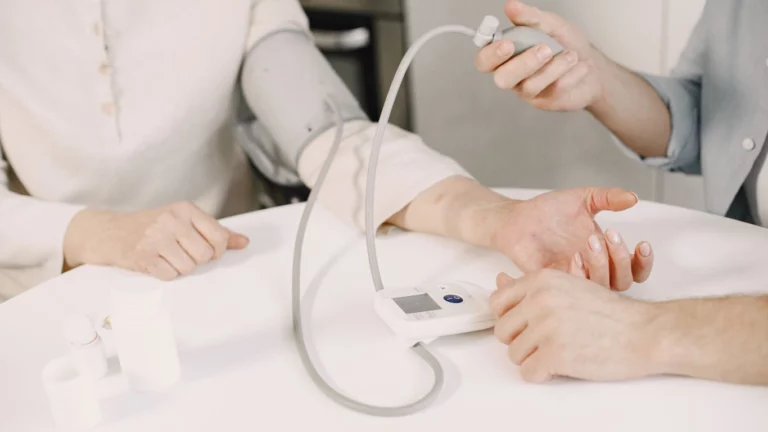Devastating Truth: How Rheumatoid Arthritis Affects Fertility
When I first started working as a rheumatology nurse practitioner, I didn’t think much about how rheumatoid arthritis could affect things beyond joints and mobility. But over time, I’ve had several heart-to-heart conversations with patients trying to start or grow their families—and that’s when it really hit home. Rheumatoid arthritis and its impact on fertility isn’t just a medical concern; it’s deeply personal, emotional, and frankly, not talked about enough. This article is for anyone wondering how RA might influence fertility, pregnancy, or family planning. Let’s dive in.
What Exactly Is Rheumatoid Arthritis?

Rheumatoid arthritis (RA) is an autoimmune condition, meaning the body’s immune system mistakenly attacks its own tissues. In the case of RA, this primarily affects the joints—causing inflammation, pain, stiffness, and over time, joint damage. But what a lot of people don’t realize is that RA doesn’t stop at the joints. It’s systemic. That means it can affect other parts of the body, from the eyes to the lungs… and yes, even the reproductive system.
I’ve seen patients in their late 20s or early 30s—prime years for starting a family—come in feeling overwhelmed. They’re juggling flares, meds, and now questions about whether they can even get pregnant or carry a healthy baby. Totally understandable.
How RA Might Impact Fertility

1. Inflammation Can Interfere
Chronic inflammation, a hallmark of RA, may interfere with ovulation. When your body is constantly in “attack mode,” it doesn’t exactly prioritize reproduction. Think of it as your body being in survival mode—it’s just not the ideal environment for nurturing new life.
Some research suggests that high disease activity might reduce fertility by messing with hormone levels or the lining of the uterus. While every patient is different, it’s something I always flag when we talk about conception plans.
2. The Role of Medications
Now this is a big one. A lot of meds we use to manage RA symptoms—like methotrexate—are absolutely not safe during pregnancy. I always tell my patients, “If there’s even a tiny chance you’re thinking of getting pregnant, we need to talk meds first.” Here’s a breakdown of what we typically see:
- Methotrexate: Effective for RA but can cause birth defects. Must be stopped well before conception (both in women and men!).
- Leflunomide: Also unsafe—requires a full drug elimination procedure before trying to conceive.
- Biologics (like Enbrel or Humira): Generally considered safer, especially if the disease is active and needs control.
Switching meds isn’t always easy, and it can take weeks or months to transition safely. That’s why early planning with your rheumatology team is key—ideally six months to a year before trying.
3. Timing Is Everything
RA has a mind of its own. Some days you’re fine, other days it feels like your joints are rebelling. So planning for pregnancy during a low-disease activity window is usually the safest bet. In fact, many OB-GYNs and rheumatologists recommend waiting until RA is well-controlled for at least 3–6 months before trying.
From my clinical experience, patients who conceive during remission tend to have smoother pregnancies with fewer complications. It’s not a guarantee, but it makes a huge difference.
Emotional and Mental Load of Fertility with RA

Let’s not ignore the emotional side of all this. Dealing with RA is already a lot—now layer in fertility struggles, pregnancy planning, and medication adjustments? It can feel like a full-time job. I’ve had patients break down in my office, feeling like their body is betraying them twice: once with the disease, and again when it comes to starting a family.
Support matters. Whether it’s a partner, friend, therapist, or a fellow RA warrior, having someone who “gets it” is everything. And from a provider perspective? I always try to be that safe space where my patients can ask anything, vent, or just cry if they need to. Because this stuff is real, and it deserves more than just a quick Google search and a shrug.
Pregnancy with Rheumatoid Arthritis: What to Expect

So you’ve made it to the pregnancy phase—first of all, congrats! Seriously, this is such a huge milestone, especially when you’re navigating rheumatoid arthritis and its impact on fertility. But naturally, this brings a whole new set of questions: Will RA symptoms flare? Is it safe to stay on meds? What if I feel worse instead of better?
Here’s the good news: for a lot of people with RA, pregnancy actually eases symptoms. Yep, it’s one of those strange, beautiful quirks of the immune system. Somewhere around the second trimester, many patients tell me, “I feel like my old self again.” I’ve had patients go from barely getting out of bed to glowing with that magical second-trimester energy. But—there’s always a but—this doesn’t happen for everyone, and we can’t exactly predict who’ll get symptom relief and who won’t.
Flares During Pregnancy
While some get relief, others still experience flares. I always remind my patients to stay in close contact during pregnancy, especially during the early months when hormones are shifting like crazy. And postpartum? That’s a time we really need to keep our eyes peeled—more on that shortly.
What helps is tracking symptoms in a journal or an app. Not just joint pain, but fatigue, stiffness, sleep changes—those sneaky signs of inflammation. It gives us a better picture of what’s going on and helps us make smart medication tweaks if needed.
Medications You Can (Usually) Take
This is something I always work closely on with OB and rheumatology teams. You want a plan that keeps both you and baby safe. A few medications are generally considered okay:
- Hydroxychloroquine: Often safe and well-tolerated.
- Sulfasalazine: An oldie but a goodie—frequently used in pregnancy.
- Certain Biologics: Some (like certolizumab) don’t cross the placenta easily, which is a plus.
- Low-dose prednisone: Sometimes used short-term for flares.
What we try to avoid are drugs like methotrexate or leflunomide, which should already have been discontinued before pregnancy. Every med decision is a balancing act, and having a care team that communicates well with each other makes a world of difference.
Risks and Considerations During Pregnancy

1. Miscarriage and Preterm Birth
This is one of the tougher topics, but I believe in being real with my patients. Having RA can slightly raise the risk of miscarriage or early delivery, especially if the disease is not well-controlled. That said, many of my patients have had healthy, full-term babies. The key is keeping inflammation in check and sticking with regular prenatal care.
2. Preeclampsia and Gestational Hypertension
There’s also a slightly higher risk of conditions like preeclampsia (high blood pressure plus organ involvement) or gestational hypertension. We typically monitor blood pressure closely and might run extra lab work or ultrasounds to stay ahead of any potential issues.
3. Anemia and Fatigue
Pregnancy already brings its own exhaustion, right? But in someone with RA, that fatigue can be next-level. Plus, inflammation can cause or worsen anemia, which doesn’t help matters. It’s why I encourage my patients to check their iron levels regularly and not ignore persistent tiredness. It’s not just “being pregnant”—sometimes it’s your body waving a flag for help.
Postpartum Challenges with RA

Now let’s talk postpartum—because honestly, this is when I see the most challenges. The first three months after delivery are when RA tends to come roaring back. I always tell my new moms, “Give yourself a lot of grace.” Your body’s adjusting to a whole new hormonal landscape, you’re not sleeping, and your joints may not be thrilled about late-night feedings or endless rocking.
Flares during this time are super common. That’s why we usually make a plan before delivery to restart or adjust medications ASAP, assuming breastfeeding plans are clear. There are meds that are compatible with nursing, and if bottle-feeding is part of your plan, we have even more options.
- Prep your meds before delivery: Have your prescriptions ready so you’re not scrambling.
- Set up a support system: Whether it’s your partner, family, or a postpartum doula, you need help. Not a want—a need.
- Listen to your body: If something feels off, don’t brush it off. Check in with your care team.
- Don’t suffer in silence: Mental health is just as important as physical. RA and postpartum emotions can be a tough combo. Talk to someone.
I’ve sat with patients who felt guilty for struggling—like they “should” be happy because the baby is here. But having RA adds layers most people don’t understand unless they’ve lived it. So please, be kind to yourself. This isn’t about perfection. It’s about surviving—and thriving—one day at a time.
Family Planning with RA: Looking Beyond Baby #1

So, you’ve navigated fertility challenges, made it through pregnancy, and survived those intense postpartum months. Now what? For some, the journey doesn’t stop at one baby. And for others, it might involve difficult choices about whether to expand their family at all. As someone who’s walked alongside patients through these decisions, I’ve learned one thing: there’s no one-size-fits-all path when it comes to rheumatoid arthritis and its impact on fertility.
Some of my patients have told me, “Tarra, I want another baby, but I’m scared. I barely got through the last flare.” That fear is valid. Others have shared that their RA is so well-managed now, they’re thinking of trying sooner than later before another flare disrupts things. Timing becomes everything again—but this time with the added challenge of caring for a little one while managing your disease and prepping your body for another pregnancy.
Spacing Between Pregnancies
This is where careful coordination comes in. We often recommend giving your body a solid year or more between pregnancies—not just for recovery, but also to re-establish RA control. That doesn’t mean you have to wait forever, but jumping back in too soon while your disease is still flaring can put you at risk physically and emotionally.
Here’s what I often recommend:
- Assess your current RA status: Are you in remission? How stable have you been the past 3–6 months?
- Revisit your meds: Some might need to be paused again if trying to conceive.
- Talk through your goals: Not just with your rheumatologist, but also your OB-GYN and maybe a maternal-fetal medicine (MFM) specialist.
It’s also worth having a real conversation with your partner or support network about what help looks like this time around. Whether it’s family, a postpartum doula, or childcare plans, the more you can line up in advance, the more energy you’ll preserve for both your RA and your growing family.
Lifestyle Support for Fertility and RA

Here’s something I’ve learned that might surprise you: lifestyle really can move the needle when it comes to managing RA and supporting fertility. No, it won’t replace meds—but it’s a powerful companion to them.
1. Nutrition Matters (More Than We Think)
I’ve had patients who’ve shifted toward anti-inflammatory diets and noticed fewer flares and better energy. While there’s no one “RA diet,” focusing on whole foods, omega-3s, and reducing ultra-processed junk can make a difference. Think:
- Fatty fish like salmon or sardines
- Leafy greens and colorful veggies
- Olive oil, nuts, seeds
- Cutting back on refined sugars and trans fats
It also supports hormone balance, which ties directly into fertility. I’ve worked with dietitians who specialize in autoimmune and reproductive health—they’re an incredible resource if you want a more tailored plan.
2. Gentle Movement = Joint Love
Regular low-impact activity can ease joint stiffness and improve circulation. Plus, it’s a natural stress-buster. My go-to recommendations?
- Yoga or Pilates (with RA-friendly modifications)
- Swimming or water aerobics
- Walking with supportive shoes
Even 15–20 minutes a day can help. And during pregnancy, these activities become even more beneficial.
3. Stress and Sleep—Your Secret Weapons
This one’s personal. I’ve watched countless patients power through pain without letting themselves rest—especially moms. But sleep is where your immune system does its repair work. So if you’re burning the candle at both ends? Your RA will notice.
Simple things like a bedtime routine, limiting blue light before sleep, or using guided meditation apps can help you wind down. And if stress is high (which it probably is), consider talking to a therapist. Mental health is deeply connected to inflammation—it’s not “just in your head.”
Final Thoughts and Where to Go from Here
Let me leave you with this: living with RA doesn’t mean giving up on fertility or family dreams. It just means the path might look a little different—and that’s okay. I’ve had the privilege of walking beside many patients on their journey to parenthood, and each story is uniquely powerful.
With the right care team, thoughtful planning, and a whole lot of self-compassion, you can navigate rheumatoid arthritis and its impact on fertility in a way that honors your body and your dreams.
References:
Disclaimer:
This article is for informational purposes only and is not a substitute for professional medical advice, diagnosis, or treatment. Always talk to your healthcare provider about any questions you may have regarding your condition or treatment plan.

Tarra Nugroho is a dedicated Nurse Practitioner with a strong foundation in family and preventive care. She brings both compassion and clinical expertise to her practice, focusing on patient-centered care and health education. As a contributor to Healthusias.com, Tarra translates medical knowledge into clear, empowering articles on topics like women’s health, chronic disease management, and lifestyle medicine. Her mission is simple: help people feel seen, heard, and informed—both in the clinic and through the content she creates. When she’s not caring for patients, Tarra enjoys weekend hikes, plant-based cooking, and curling up with a good health podcast.







